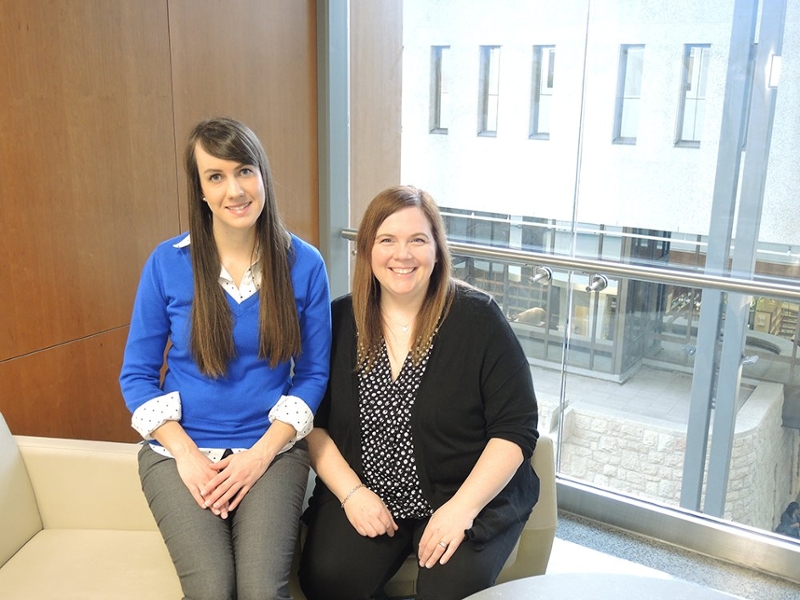
Laura Vogelsang Receives WNRCASN Graduate Student Award
Nursing students spend time learning theory in the classroom, practicing skills in a simulated lab environment and ultimately, hands-on with patients during clinical placements.
Under the guidance of a clinical instructor, nursing students put the knowledge and skills learned from classes and labs into practice at the bedside. But when students reach the point of practicing as a nurse during a clinical placement, how do they learn to “think like a nurse” and what resources do they rely on?
Graduate student and limited-term lecturer in the College of Nursing, Laura Vogelsang has received the 2017 Western & North-Western Region Canadian Association of Schools of Nursing (WNRCASN) Graduate Student Award for her project, The Influence of Mobile Technology on Clinical Reasoning for Nursing Students. Vogelsang’s project will investigate the resources that nursing students use during clinical rotations, specifically mobile technology. “When students start their clinical placements, they often rely heavily on learning resources, expert nurse advice and pre-made care plans,” said Vogelsang. “One example of a learning resource that is commonly seen is mobile technology - students are using apps, organizers and the internet to help deliver care to patients. How does the use of mobile technology influence the student’s ability to “think like a nurse” in patient-specific scenarios - this is the primary question I am hoping to answer through my research.”
College of Nursing Assistant Professor Dr. Tracie Risling is supervising Vogelsang on this project. “It has been a pleasure to work with Laura, as she explores the ever increasing presence of technology in nursing and, in particular, it’s evolving role in the education of future nurses. Her doctoral work exploring the effects of mobile devices on clinical reasoning in nursing education is a needed contribution to nursing science. Laura is a thoughtful and dedicated scholar and is most deserving of this award. I thank WNRCASN for their ongoing support of graduate students and the future of nursing research.”
Vogelsang noted doing her research requires participation from two groups. “It is important I look to not only the students to see how they are using mobile technology at the bedside, but also to the on-site clinical nursing instructors to gauge their perception of students using mobile devices during placements to help with clinical reasoning. Clinical education is an integral part of training baccalaureate prepared nurses and I’m very interested to see if both students and instructors feel the use of mobile technology is beneficial. While there may be a lot of information readily available for those who use mobile technology, it may not all be useful.”
About the Award
The Western & North-Western Region Canadian Association of Schools of Nursing Graduate Student Research Award supports graduate student research activities focused on nursing education. One award of up to $2,500 is funded annually and it is expected the research will be completed within two years.

